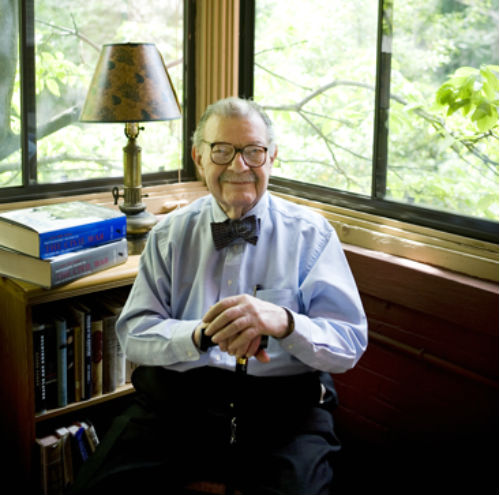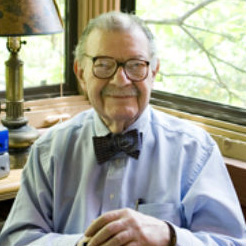
Everett Ortner, one of the most influential leaders of the revival of Park Slope since the 1960s to the vibrant community it is today, passed away on May 22. He was 92.
Ortner and his wife Evelyn bought their brownstone on Berkeley Place in 1963, when “many believed the neighborhood was headed toward becoming a drug-infested slum,” said John Casson, a Park Slope Civic Council trustee and resident since the 1960s. Ortner spearheaded the brownstone-revival movement in New York City and nationally. He and his wife were founders (with Joe Ferris) and leaders of the Park Slope Betterment Committee, which organized many series of particularized house tours (hard-selling houses that needed work). With Ken Patton as chairman, Ortner was a co-founder and first president of what is now the Brownstone Revival Coalition — a citywide organization devoted to the promotion and preservation of New York City’s older communities.
In 1966, he and his wife persuaded the Brooklyn Union Company (today National Grid) to renovate an abandoned Park Slope brownstone in order to demonstrate how such houses could be transformed into desirable homes. This successful endeavor led to a seven-year-long series of Brooklyn Brownstone Fairs (under the direction of Ortner and fellow brownstoner Nat Hendricks) at Brooklyn Union’s downtown headquarters to publicize Brooklyn’s great 19th-century housing stock. Some 25,000 people, mostly non-Brooklynites, attended each of these weekend fairs, which also featured bus tours of any of six brownstone communities. Many of those visitors were then inspired to purchase and live in Brooklyn brownstones.
“It was through the promotional efforts of Everett and Evelyn that I and my wife and many other people moved to Park Slope 45 years ago,” Casson said. “If it wasn’t for their efforts, Park Slope wouldn’t have a historic district and, more important, it wouldn’t have become the handsome, dynamic community that it is today.”
Based on those successes, in 1972 Ortner conceived and directed the first Back to the City Conference in New York, which brought together 250 representatives of 82 cities across the nation. Out of the conference and the strongly felt need for a national organization to focus on urban residential revival through the preservation of old communities, came Back to the City, Inc. Ortner served as president of the organization until 1983. Back to the City sponsored a series of annual conferences in a dozen major cities, including Washington, D.C.; Milwaukee; Cleveland; San Antonio; St. Paul, Minn.; Hartford, Conn.; and Miami Beach, Fla.
Over the years, Ortner has also served as vice president of the Civic Council, board member and president of the Montauk Club, trustee and vice president of the Brooklyn Historical Society, and a board member of Preservation Action (Washington, D.C.), among other roles.
Watch for a further exploration of Everett Ortner’s legacy in Park Slope in the next issue of Civic News.
from the June 2012 Civic News

